Beyond the last village
Exploring the breath-taking parts of Cyprus that most people do not reach
I’d got up early, hoping to catch some nice pictures of the sunrise over the sea, but rocky high-ground blocked the view. I surveyed our camp and smiled inwardly as I reflected that the scene before me reminded me of a child’s bedtime story or of Telly Tubbies waking up and saying “hello” to each other in a children’s TV programme.
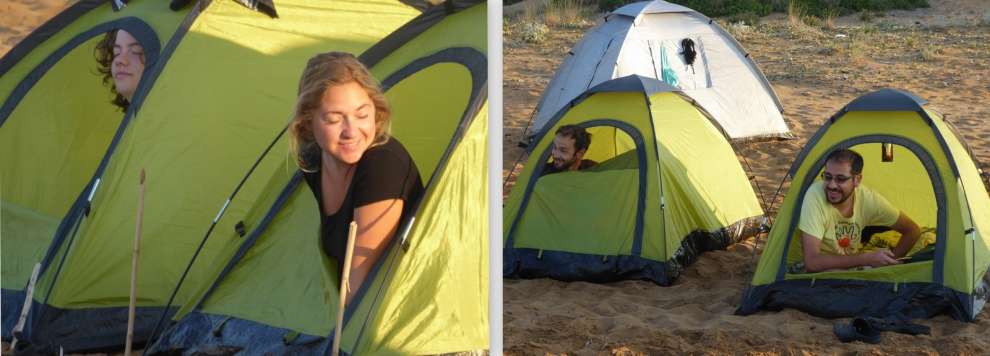
A few days earlier, a post had landed in my Facebook Newsfeed from “See Why”, inviting young people to join in a group of young people from all over Cyprus on the 3rd to 5th June to see the beauty of Cyprus’ Nature and Culture from a different perspective. The post was headed “Beyond the Last Village”. It sounded an interesting trip and having only just turned 70, I thought I should scrape through the age criteria.
We accordingly met up shortly after 8am in the car park of the Nicosia General Hospital and set off on our expedition, venturing into the illegally occupied areas. As we crossed the check point I could not help raising my eyebrows at the sign in Orwellian double-speak “Peace at home – Peace in the World” (or words to that affect).
Our first stop was at an incredible sculpture of nature at the rocky beach near Kalograia village. I felt that they were like some special landing port for airborne submarines in a James Bond film. The rocks were a most amazing site to behold. In the distance was a no-longer-used Carob Warehouse. It was on this stop that the different members of the group got to briefly introduce themselves to each other.
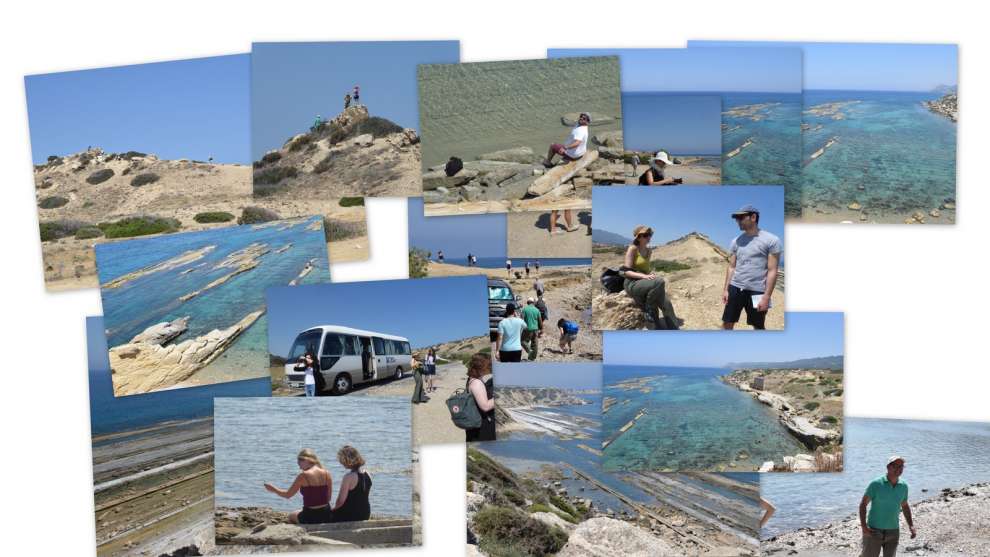
A little further we stopped at another Carob Warehouse in Komi Kebir. Carob cultivation and trade was once big business here, but whether through neglect or lack of water there were no more carob trees to be seen.
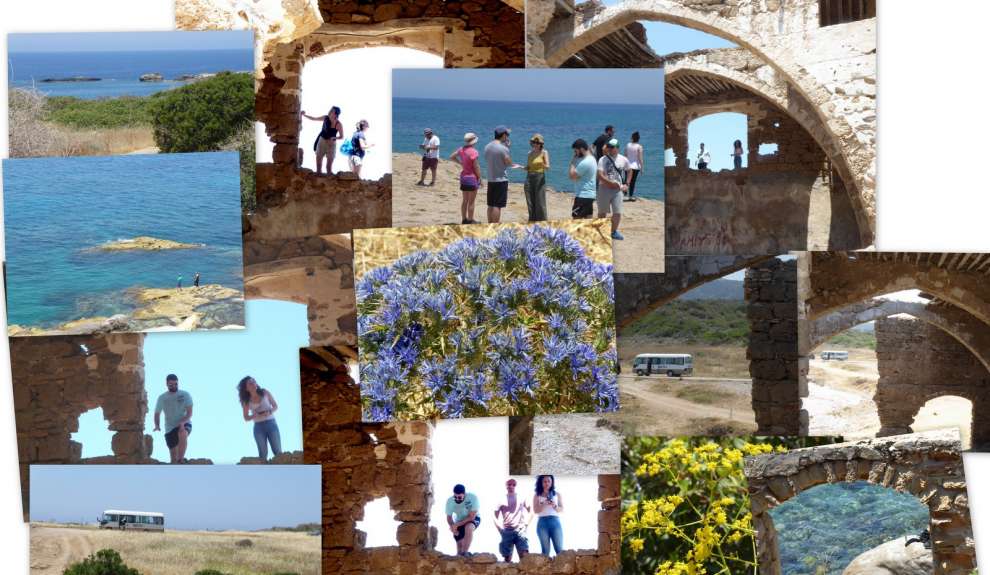
Our final stop before moving on to beyond the last village was at Buyukonnuk – a little stop for a snacklet and a beer. It felt strange being in the Turkish Occupied parts, but several of the people at the café spoke in Greek to us and two of the girls joined in a game of “Tavli” (backgammon) and good humour prevailed. It often seems impossible to envisage a Cyprus solution when one feels the disrespect shown in the desecration of our churches, the irritating incursions into the waters of free Cyprus by the Barbaros Oil exploration vessel and the constant arrogance of Turkey’s President. At the same time, it is in contact such as this that one sees that the populace of countries everywhere is not keen on war, but a peaceful co-existence.
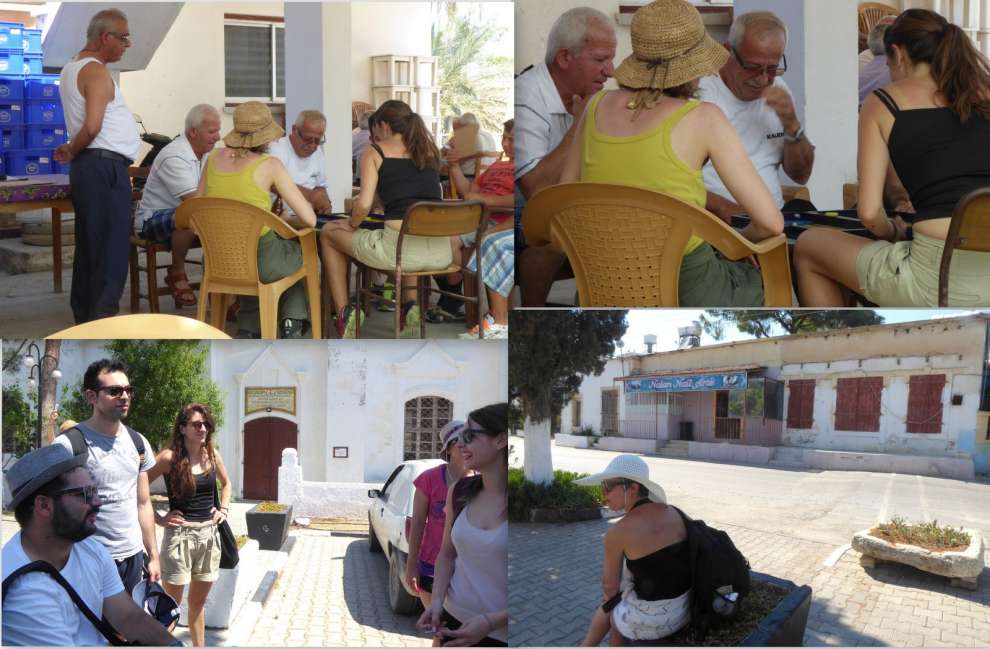 And thus, we reached our first night’s destination, an isolated beach near Neta village. Conveniently for us the Turks do not seem to like beaches much, and so it was that we had it all to ourselves except for a small fishing boat that chugged out in the evening and into the harbour at dawn. The downside is that they are not bothered about cleaning the beaches of all the driftwood and other debris that the sea brings in. The other downside was the plethora of mosquitoes. They must have been dying for a good banquet with so few humans on which to feast. After we had put up our tents and enjoyed a swim, Kyriakos, our organiser, called for a little group meeting and asked people to volunteer for one of three tasks: collecting firewood, cooking or washing up afterwards. Those of you who know me will have guessed that I volunteered to be in the cooking team.
And thus, we reached our first night’s destination, an isolated beach near Neta village. Conveniently for us the Turks do not seem to like beaches much, and so it was that we had it all to ourselves except for a small fishing boat that chugged out in the evening and into the harbour at dawn. The downside is that they are not bothered about cleaning the beaches of all the driftwood and other debris that the sea brings in. The other downside was the plethora of mosquitoes. They must have been dying for a good banquet with so few humans on which to feast. After we had put up our tents and enjoyed a swim, Kyriakos, our organiser, called for a little group meeting and asked people to volunteer for one of three tasks: collecting firewood, cooking or washing up afterwards. Those of you who know me will have guessed that I volunteered to be in the cooking team.
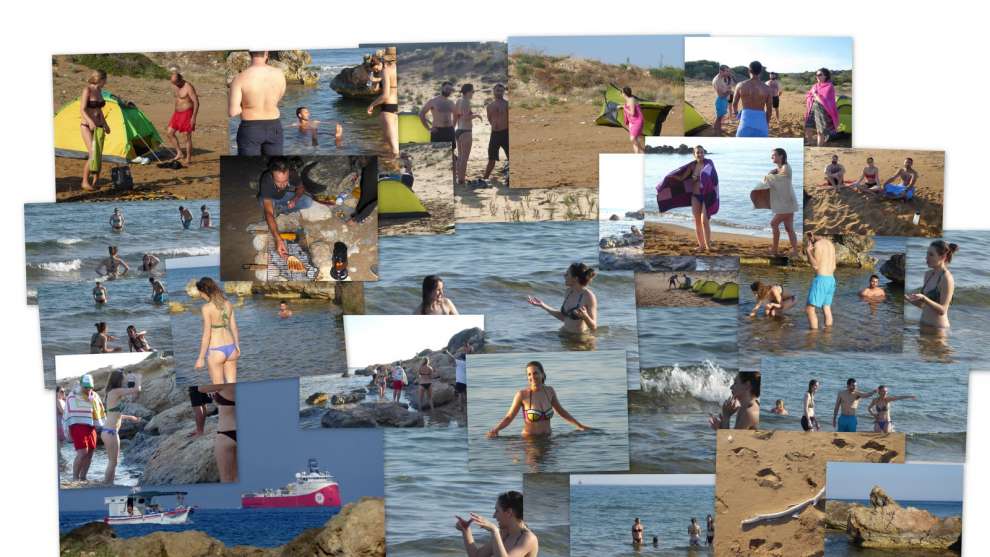
The next day was spent in part visiting Orthodox churches in various stages of dilapidation,the least delapidated being the famous “Apostolos Andreas” which has had extensive restoration work on it and where a restricted amount of church services are permitted. Highlight of the day though, was a 4-5 kilometre walk to an isolated beach near the old abandoned town of Ourania. This had been abandonded during the 7th century Arab raids. We were given the choice of walking the 4-5 kilometres and seeing picturesque scenery and the abandoned village or going nearly all the way by bus. I opted for the walk. The temperature was about 28-30C in the shade except that there was no shade whatsoever during the entire walk. When we reached our beach, it felt as if we had arrived at the promised land – "promised sea", I should say perhaps. “Would you like something to eat before you go to swim?” asked Kyriakos. “No thanks, “I replied, “Just a drop of water and all I want right now is to jump into the sea." I cannot describe to you how blissful it is to dive into the sea after such a long walk under the Cyprus June sun.
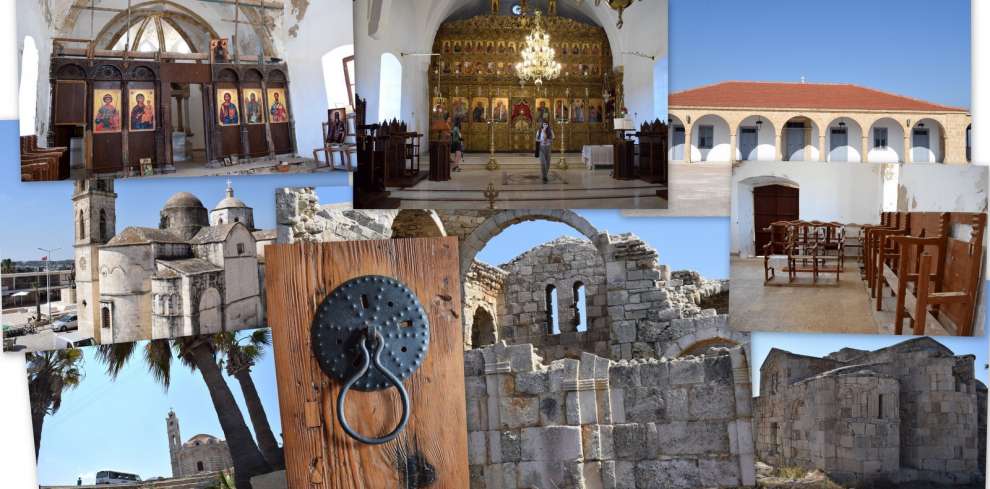
I had just got back to the bus in readiness for our departure from the “Promised Sea” when we were met with the most amazing site: a herd of wild goats skilfully negotiating their way down the cliffs to the seashore and proceeding to lap up sea water. Normally I will put myself out a lot for a good photo, but on this occasion, I just felt too tired to clamber back down to the sea and then back up again. I contented myself with a couple of pics for the record using maximum zoom and the wrong lighting conditions.
Goats were not the only sizeable animal we found roaming on their own. Earlier at the Monastery of Apostolos Andreas several donkeys walked up to us and the next day they even came right up to our bus while we were on our journey back. Now I could understand why those stallholders at Rizokarpaso were selling bags of “donkey food”. “Donkey food?” I had asked myself.
So off we went to our destination for our second night’s camping. We reached a sign for Golden Beach and ignored it carrying as if we were going to plough through jungle-like vegetation. Suddenly there was a rough dirt track to the left which we followed till we reached a large boulder after which we could drive no further. We needed to carry our personal belongings and culinary equipment/food down to the beach. Another corner of paradise (but also invaded by mosquitoes from hell). In the distance was anchored a Turkish patrol boat. They probably wondered what all these humans were doing there. They stayed and were replaced with another ship late in the night.
We saw a hole that looked to be of a turtle for its eggs. We looked to see if there were others in which case we would have moved on. We did not see any. On the contrary, we saw fox tracks near the hole and assumed a fox had gobbled up any eggs that had been there. However, just in case, we did not light a fire other than a small charcoal one for preparing our supper some distance away.
First event next day was an optional walk along the seashore to the next beach to sea to see the sunrise, climbing high sand dunes to reach the next beach. Unfortunately, rocky high ground blocked the view of the sun actually coming over the sea, but it was beautiful nonetheless. There were all sorts of tracks in the sand from nature’s diverse animal kingdom. Two agile crabs jumped out of the sand in front of me. I was very glad that they were afraid of me, because I was certainly afraid of them and their sharp claws. They scampered away at the speed of light then froze, camouflaging themselves against the shingle.
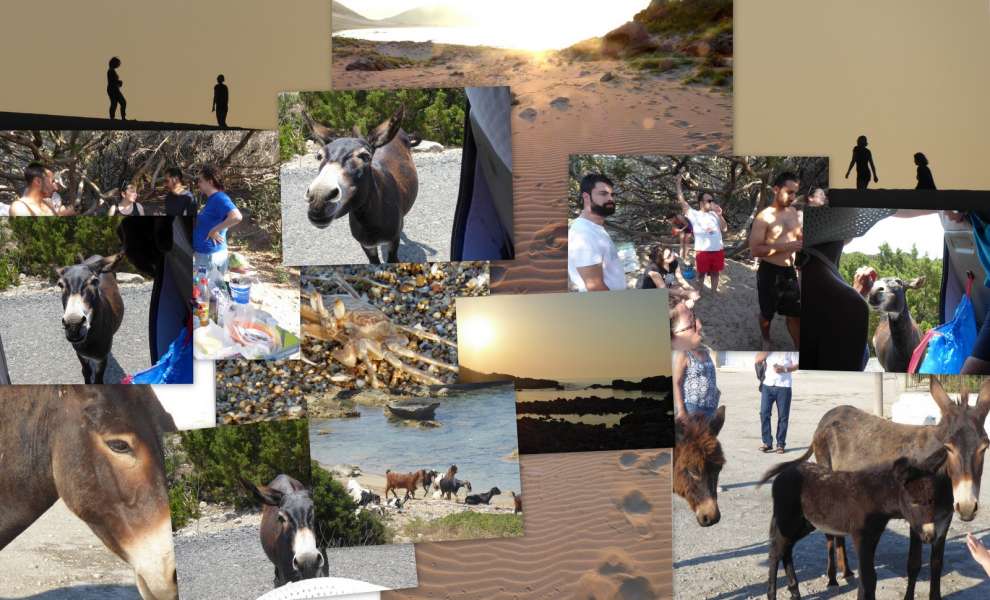
I was curious about the see.why organisation, and during this walk as well as during the previous day’s walk to the “promised sea”, I had the chance to talk with Kyriakos about it. He had set up the organisation as an NGO back in 2013. Its main objectives are, essentially, the creation of activities, particularly explorational, for young people in a way that raises personal awareness and helps develop a supportive and peace-loving society that rises above ethnic hatred and discord.
In two ways, it is quite difficult for Greeks to do this. While the theme of forgiveness is central to the Christian religion with which we are almost universally brought up, it is an integral part of the forgiving process to have repentance on the part of the transgressor. The Turkish leadership, which clearly controls the authorities in the Pseudo State of the North, far from being contrite about past barbarism, is constantly making threats to repeat the atrocities of 1922. Secondly, the concepts of self-respect and respect of the other are deeply intertwined in the Greek Psyche -see my article on the 25th March celebrations https://www.cyprusalive.com/el/march-25th-double-celebration-in-the-village-of-lageia. How do we defend ourselves, exerting our self-respect and simultaneously show respect with a government that makes almost daily illegal military incursions into Greek and Greek Cypriot waters and air space (quite apart from being an outlaw presence in Northern Cyprus in the first place).
Yet the refrain of the see.why approach was taken up by the sprightly Turkish Cypriot caretaker of the derelict Church of Kanakaria that was first constructed in the 5th century. Here was an old man, probably in his eighties, from the other side who, unpaid and purely on a voluntary basis, kept the church under lock and key to avoid having it desecrated by his fellow-citizens, who welcomed visitors, gave his time to show them round and recounted numerous stories and legends about the church’s past.
“I have seen so many killings over the various struggles Cyprus has experienced in the last sixty years. For what? Life is short.”
“You are young,” he continued. “Peace is in the hands of the young”.
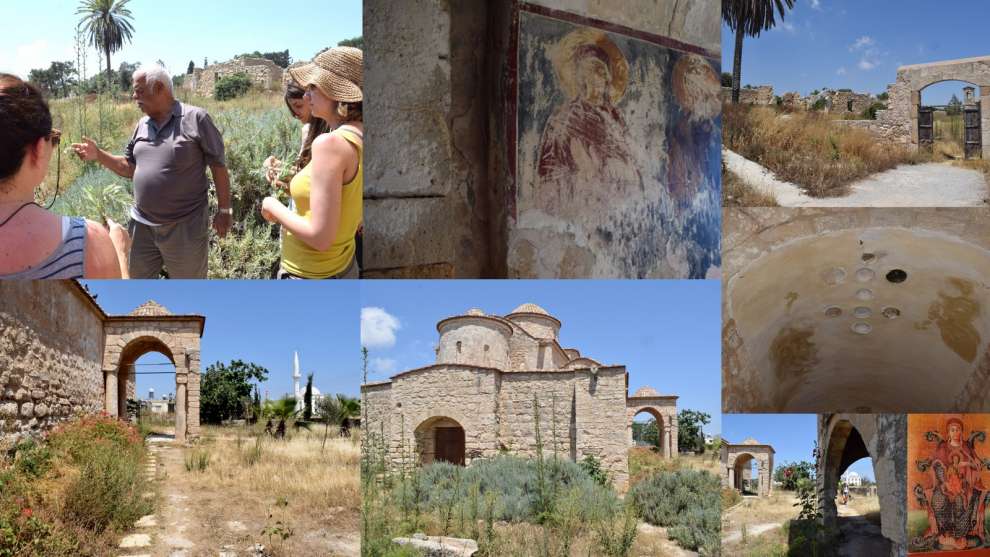

 English
English
 Ελληνικά
Ελληνικά Русский
Русский













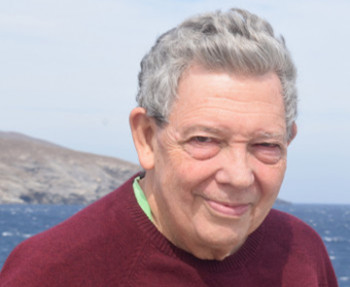 Posted by
Bill Warry
Posted by
Bill Warry






